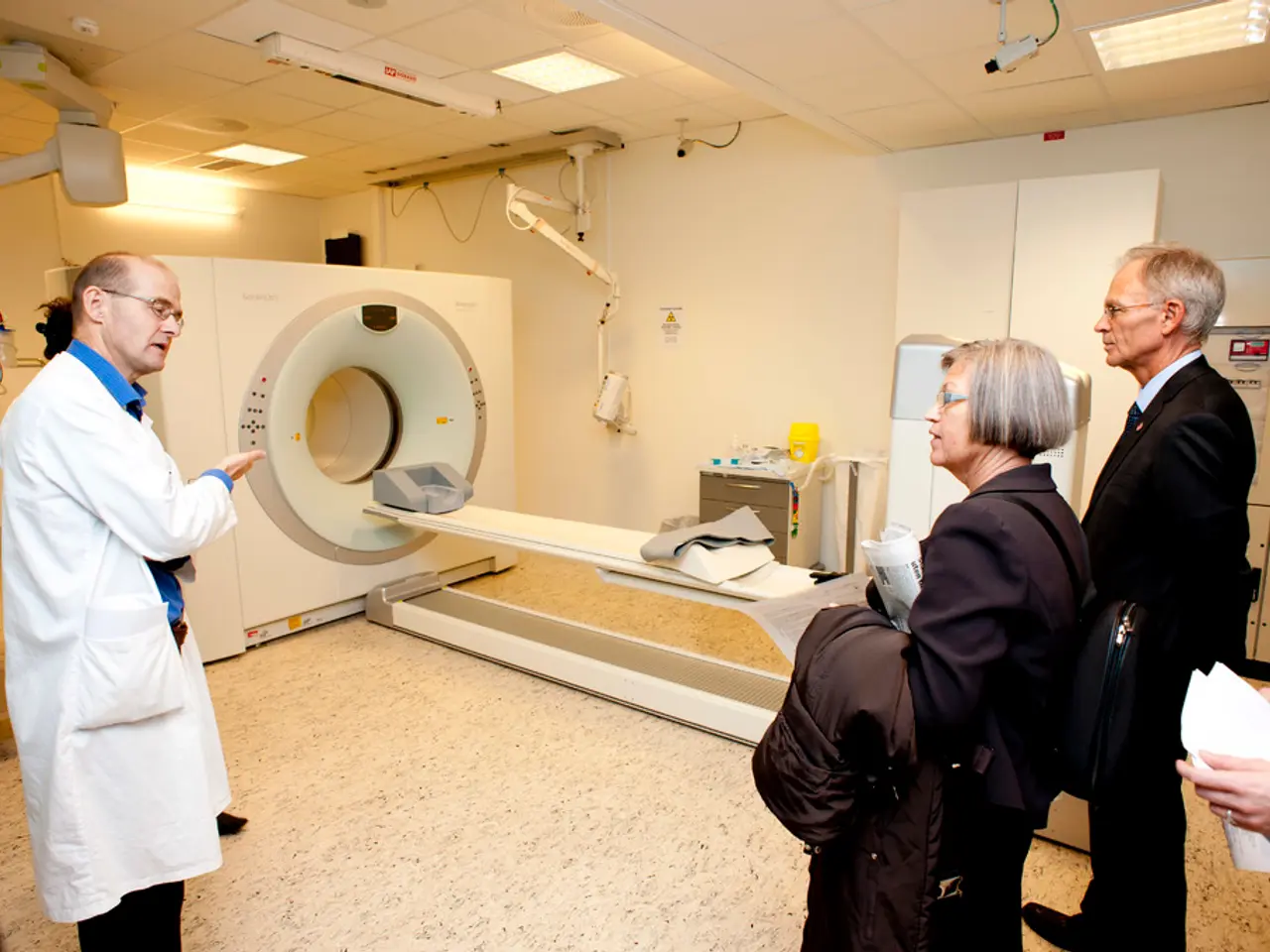Clinic Atlas should be dismantled, advocates for patient rights contend
In the heart of Europe, Germany is currently grappling with a contentious hospital reform, with various stakeholders voicing their opinions on the matter.
At the centre of the debate is the Federal Clinic Atlas, an online portal that provides comprehensive information about German hospitals and their services, quality, and performance data. The Atlas, a project of the Federal Ministry of Health, is under review and has been criticised for its incomplete information and high costs.
According to the latest reports, the Atlas currently has around 200,000 users, while the DKG clinic directory, a rival service, receives around 600,000 hits per month. The DKG directory, which requires only 120,000 euros in funding for technical adjustments, contrasts sharply with the Atlas's annual budget of 1.5 million euros.
The organization advocating for the abolition of the Federal Clinic Atlas is the Deutsche Stiftung Patientenschutz (German Foundation for Patient Protection). This call has also been echoed by Niedersächsian Health Minister Philippi, and Catholic hospitals, who criticise the Atlas for its high costs, bureaucracy, and low informative value.
Janosch Dahmen, a health politician, has been vocal in his criticism of the hospital reform, stating it would create a patchwork, increase costs, and reduce quality. He is not alone in his views, as the Green politician also criticises the reform as a deterioration.
The hospital reform, defended by Federal Minister of Health Nina Warken, is aimed at improving the quality of treatment, specializing clinics more strongly, bundling services and personnel better, and performing complex interventions more targeted. The reform also provides for a partial shift away from funding through case-based payments.
Warken is pushing for relief in the financing of care places and is holding the federal states accountable. She also wants to discontinue the Federal Clinic Atlas, citing the need to secure quality and bundle personnel as the primary objectives of the reform.
However, not everyone is in agreement. DKG chief Gerald Gaß suggests a return to the German Hospital Directory as a pragmatic and citizen-friendly step. Business manager Eugen Brysch of the German Patient Protection Foundation also criticises the lack of utility of the Clinic Atlas and supports the hospital directory of the DKG instead.
The reform's impact on the network of around 1,700 clinics is expected to be significant, with a likely reduction in size. Hospitals in Thuringia, for instance, have reported incorrect data in the Atlas, leading to concerns about the accuracy of the information provided.
The hospital reform, a complex and divisive issue, continues to spark heated debates among politicians, healthcare providers, and the general public. As the fall approaches, it remains to be seen how the reform will shape the future of healthcare in Germany.








